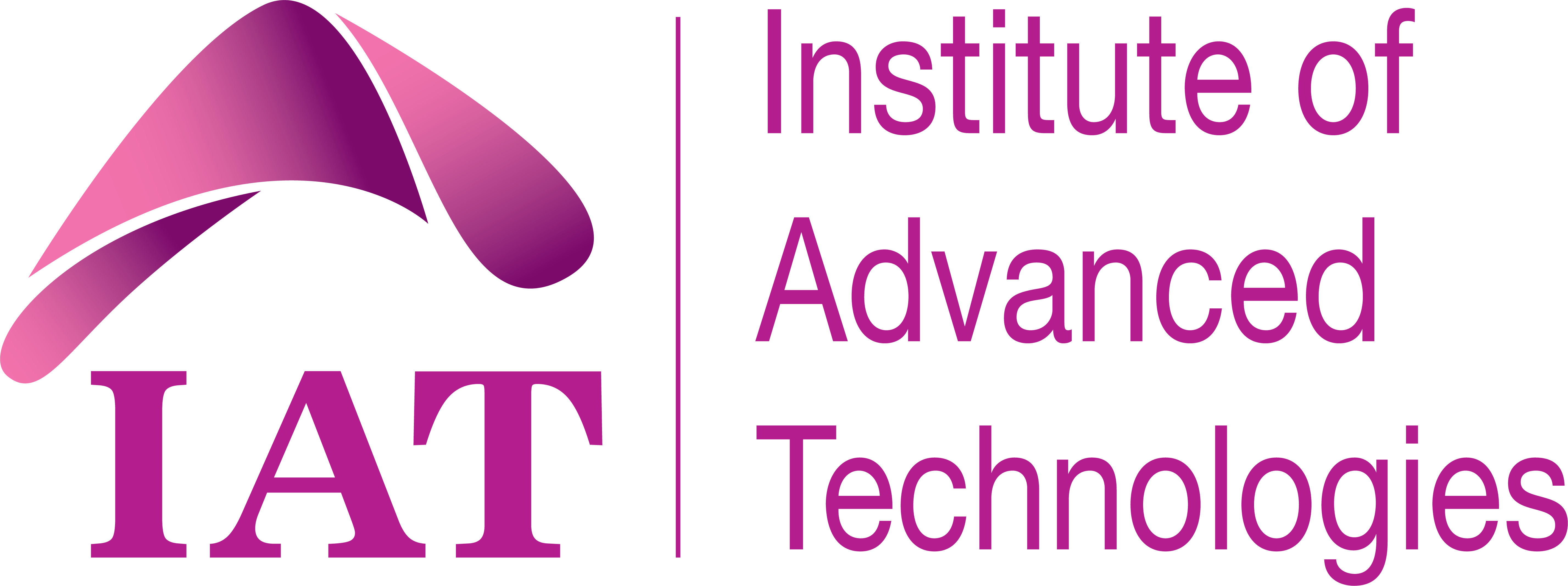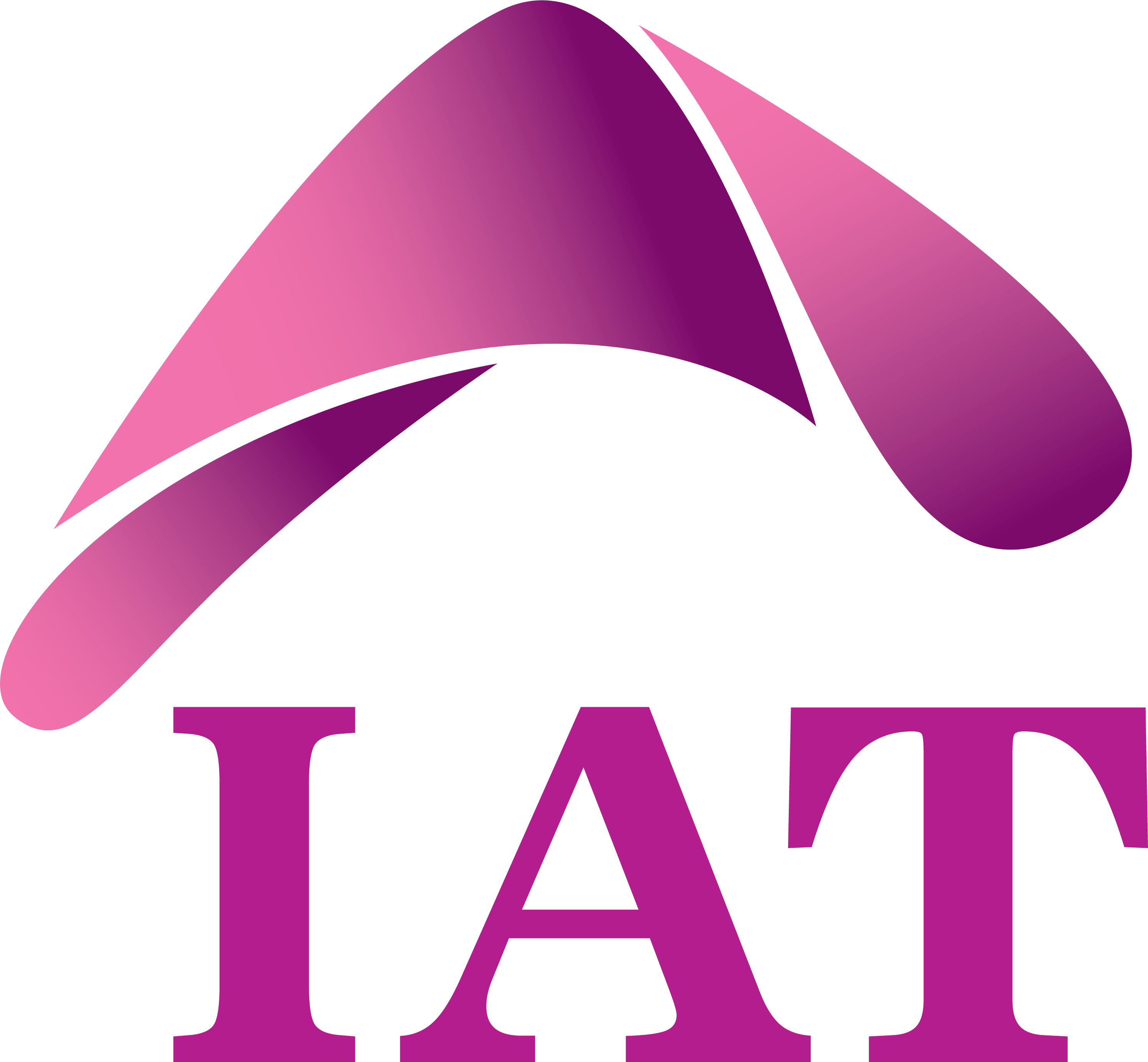IAT Academy is proud to engage in strategic partnerships that enhance our educational offerings and provide valuable opportunities for our students. These collaborations reflect our commitment to fostering a dynamic learning environment and preparing our students for success in their academic and professional journeys.
AWS Academy Courses
AWS Academy is an initiative by Amazon Web Services (AWS) to provide educational institutions with resources and support for integrating AWS cloud computing content into their curricula. The program is designed to help students acquire the skills and knowledge needed to pursue careers in cloud computing and AWS-related roles.
IAT Diploma students are authorized to attend the following AWS Academy courses:
AWS Academy Cloud Foundations
- Module 1: Cloud Concepts Overview
- Module 2: Cloud Economics and Billing
- Module 3: AWS Global Infrastructure Overview
- Module 4: Cloud Security
- Module 5: Networking and Content Delivery
- Module 6: Compute
- Module 7: Storage
- Module 8: Databases
- Module 9: Cloud Architecture
- Module 10: Automatic Scaling and Monitoring
AWS Academy Cloud Architecting
- Module 1: Welcome to AWS Academy
- Module 2: Introducing Cloud Architecting
- Module 3: Adding a Storage Layer
- Module 4: Adding a Compute Layer
- Module 5: Adding a Database Layer
- Module 6: Creating a Networking Environment
- Module 7: Connecting Networks
- Module 8: Securing User and Application Access
- Module 9: Implementing Elasticity, High Availability, and Monitoring
- Module 10: Automating Your Architecture
- Module 11: Caching Content
- Module 12: Building Decoupled Architectures
- Module 13: Building Microservices and Serverless Architectures
- Module 14: Planning for a Disaster
- Module 15: Bridging to Certification
AWS Academy Cloud Developing
- Module 1: Welcome to AWS Academy Cloud Developing (ACD)
- Module 2: Introduction to Developing on AWS
- Module 3: Developing Storage Solutions
- Module 4: Securing Access to Cloud Resources
- Module 5: Developing Flexible NoSQL Solutions
- Module 6: Developing REST APIs
- Module 7: Developing Event-Driven Serverless Solutions
- Module 8: Introducing Containers and Container Services
- Module 9: Caching Information for Scalability
- Module 10: Developing with Messaging Services
- Module 11: Defining Workflows to Orchestrate Functions
- Module 12: Developing Secure Applications on AWS
- Module 13: Automating Deployment Using CI/CD Pipelines
- Module 14: Bridging to Certification
AWS Academy Cloud Operations
AWS Academy Data Center Technician
AWS Academy Cloud Security Foundations
AWS Academy Data Engineering
AWS Academy Engineering Operations Technicians
AWS Academy Machine Learning Foundations
Cisco Networking Academy Courses
Cisco Networking Academy is a global education program developed by Cisco Systems. The program aims to provide individuals with the skills needed to design, build, manage, and secure computer networks. Cisco Networking Academy offers a range of courses and resources for students, educators, and institutions interested in networking and information technology.
IAT Diploma students are authorized to attend the following Cisco Networking Academy courses:
Fundamentals Courses
- IT Essentials: PC Hardware and Software
- Networking Essentials
- Cybersecurity Essentials
- Introduction to Cybersecurity
- Introduction to IoT
- Introduction to Packet Tracer
- IoT Fundamentals
- CCNA: Introduction to Networks
- CCNA: Switching, Routing, and Wireless Essentials
- CCNA: Enterprise Networking, Security, and Automation
VMware IT Academy Courses
VMware IT Academy is a program designed to provide educational institutions with access to VMware’s virtualization and cloud computing technologies. The program aims to equip students with the skills and knowledge needed to work with VMware products and solutions, which are widely used in the IT industry for virtualization, cloud infrastructure, and enterprise mobility management
IAT Diploma students are authorized to attend the following VMware IT Academy Courses:
Fundamentals Courses
Getting Started in IT
Cloud and Virtualization Concepts
Software-Defined Storage Concepts
Network Virtualization Concepts
Intermediate Courses
Data Center Virtualization: Core Technical Skills
Virtualization and vSphere Concepts
- Module 1: Introduction to Virtual Machines
- Module 2: How Virtualization Works
- Module 3: vSphere and the Software-Defined Data Center
- Module 4: Components of a vSphere Environment
- Module 5: vSphere Graphical User Interfaces
- Module 6: VMware SDDC Solutions
- Module 7: SDDC Business Continuity
Navigating the vSphere Client
- Module 8: Getting Started with the vSphere Client Interface
- Module 9: Organizing vCenter Server Inventory Objects
- Module 10: Managing the vSphere Configuration
- Module 11: vCenter Server Roles and Permissions
Lifecycle of Virtual Machines
- Module 12: VM Virtual Hardware
- Module 13: Virtual Machine Configuration
- Module 14: Creating and Removing Virtual Machines
- Module 15: Installing the Guest Operating System
- Module 16: Installing VMware Tools
- Module 17: Upgrading Virtual Machines
vSphere Networking
- Module 18: Virtual Switches Overview
- Module 19: vSphere Standard Switches
- Module 20: vSphere Distributed Switches
- Module 21: Virtual Switch Networking Policy Security
- Module 22: Virtual Switch Networking Policy Traffic Shaping
- Module 23: Virtual Switch Networking Policy NIC Teaming and Failover
- Module 24: VM Network Connectivity Checks
- Module 25: vSphere Network Connectivity Checks
vSphere Storage
- Module 26: Datastores Overview
- Module 27: Viewing Datastore Information
- Module 28: Monitoring Datastore Usage
Virtual Machine Management
- Module 29: Overview of VM Templates
- Module 30: Creating VM Templates
- Module 31: Deploying VMs Using Templates
- Module 32: Updating VM Templates
- Module 33: Cloning Virtual Machines
- Module 34: Guest OS Customization
- Module 35: Content Library Overview
- Module 36: Virtual Appliance Overview
- Module 37: VM Migration Overview
- Module 38: Migrating VMs Using vSphere vMotion
- Module 39: Migrating VMs with vSphere Storage vMotion
- Module 40: Virtual Machine Snapshots
- Module 41: Working with Virtual Machine Snapshots
Resource Monitoring
- Module 42: VM Resource Controls
- Module 43: Working with VM CPU Shares
- Module 44: Using vSphere Alarms
- Module 45: Introduction to Performance Charts
- Module 46: Monitoring vSphere Tasks and Events
vSphere Clusters
- Module 47: Overview of vSphere Clusters
- Module 48: Overview of vSphere HA
- Module 49: Monitoring vSphere HA
- Module 50: Overview of vSphere DRS
- Module 51: vSphere DRS Settings
- Module 52: vSphere DRS Functionality
- Module 53: Overview of vSphere Fault Tolerance
- Module 54: Enhanced vMotion Compatibility
- Module 55: Certification Information
Virtual Cloud Network: Core Technical Skills
Digital Workspace: Core Technical Skills
Modern Applications: Core Technical Skills
Cloud Management & Automation: Core Technical Skills
Endpoint Security: Core Technical Skills
Professional Courses
VMware vSphere: Install, Configure and Manage [V8]
VMware vSphere: Operate, Scale and Secure [V8]
Spring: Core Training
Palo Alto Cybersecurity Academy Courses
The Palo Alto Networks Cybersecurity Academy is a program developed by Palo Alto Networks to provide education and training in cybersecurity using their Next-Generation Security Platform. The program is designed to equip students with the knowledge and skills necessary to pursue careers in the field of cybersecurity, particularly in the context of Palo Alto Networks technologies.
IAT Diploma students are authorized to attend the following Palo Alto Cybersecurity Academy courses:
Fundamentals Courses
Cybersecurity Foundation
- Module 1: Cybersecurity Landscape
- Module 2: Cybersecurity Threats
- Module 3: Cybersecurity Attack Types
- Module 4: Cybersecurity Design Models
- Module 5: Security Operating Platform
Network Security Fundamentals
- Module 1: The Connected Globe
- Module 2: IP Addressing
- Module 3: Packet Encapsulation
- Module 4: Network and Endpoint Security
- Module 5: Network Security Principles
Cloud Security Fundamentals
- Module 1: Cloud, Virtualization, Storage
- Module 2: Cloud Native Security
- Module 3: Cloud and Data Center Security
- Module 4: Mobile and Cloud Security
- Module 5: Secure the Cloud (Prisma)
Security Operations Fundamentals
- Module 1: Elements and Process of SOC
- Module 2: CSOC Infrastructure and Automation
- Module 3: Advanced Endpoint Protection
- Module 4: Threat Prevention and Intelligence
- Module 5: Secure the Future (Cortex)
Secure Access Service Edge – SASE Fundamentals
- Module 1: Introduction to SASE
- Module 2: Basics of Zero Trust
- Module 3: Basics of Software-Defined Wide Area Network – SD-WAN
- Module 4: Secure the Cloud with Prisma SASE
Intermediate Courses
Enterprise Security Deployment
- Module 1: Identify Applications
- Module 2: Deploy Security Profiles
- Module 3: Configure URL Filters
- Module 4: Contain Malware with WildFire
- Module 5: Control Access with User-ID
- Module 6: Block Encrypted Traffic Threats
- Module 7: Monitor Logs and Develop Reports
Enterprise Security Management
- Module 1: Security Architecture Planning
- Module 2: Configuring and Managing Firewall Interfaces
- Module 3: Managing Firewall Administrator Accounts
- Module 4: Configure and Manage Firewall Security Zones
- Module 5: Creating and Managing Security Policies
- Module 6: Creating and Managing NAT Policy Rules
Cloud Security Deployment
- Module 1: Cloud Security Overview
- Module 2: Monitoring Vulnerabilities
- Module 3: Monitoring Behavior
- Module 4: Maintaining Compliance
- Module 5: Incident Management
Security Operations Configuration
- Module 1: Security Operations (SecOps) Overview
- Module 2: Security Orchestration and Response (SOAR)
- Module 3: XSOAR Threat Intelligence Playbooks
- Module 4: Threat Hunting and Intelligence Sharing
Secure Access Service Edge – SASE Architecture
- Module 1: SASE Review
- Module 2: Cloud Access Security Broker (CASB)
- Module 3: Cloud Secure Web Gateway (CSWG)
- Module 4: Autonomous Digital Experience Management (ADEM)
Linux Professional Institute (LPI) Courses
The Linux Professional Institute (LPI) is a non-profit organization that focuses on promoting and validating the use of Linux, open-source, and free software. LPI provides vendor-neutral Linux certifications that are recognized globally. These certifications are designed to validate the skills of IT professionals working with Linux and open-source technologies.
IAT Diploma students are authorized to attend the following Linux Professional Institute (LPI) Courses:
Essentital Courses
Linux Essential
- Topic 1: The Linux Community and a Career in Open Source
- Topic 2: Finding Your Way on a Linux System
- Topic 3: The Power of the Command Line
- Topic 4: The Linux Operating System
- Topic 5: Security and File Permissions
Security Essential
- Topic 1: Security Concepts
- Topic 2: Encryption
- Topic 3: Device and Storage Security
- Topic 4: Network and Service Security
- Topic 5: Identity and Privacy
Web Development Essential
- Topic 1: Software Development and Web Technologies
- Topic 2: HTML Document Markup
- Topic 3: CSS Content Styling
- Topic 4: JavaScript Programming
- Topic 5: NodeJS Server Programming
Professional Courses
LPIC-1
- Topic 101: System Architecture
- Topic 102: Linux Installation and Package Management
- Topic 103: GNU and Unix Commands
- Topic 104: Devices, Linux Filesystems, Filesystem Hierarchy Standard
- Topic 105: Shells and Shell Scripting
- Topic 106: User Interfaces and Desktops
- Topic 107: Administrative Tasks
- Topic 108: Essential System Services
- Topic 109: Networking Fundamentals
- Topic 110: Security
LPIC-2
- Topic 200: Capacity Planning
- Topic 201: Linux Kernel
- Topic 202: System Startup
- Topic 203: Filesystem and Devices
- Topic 204: Advanced Storage Device Administration
- Topic 205: Networking Configuration
- Topic 206: System Maintenance
- Topic 207: Domain Name Server
- Topic 208: HTTP Services
- Topic 209: File Sharing
- Topic 210: Network Client Management
- Topic 211: E-Mail Services
- Topic 212: System Security
Oracle Academy Courses
Oracle Academy is an educational initiative by Oracle Corporation that provides resources and support for institutions and educators to integrate Oracle technologies and computer science concepts into their curriculum. The program is designed to prepare students for careers in technology and help them develop skills relevant to the IT industry.
IAT Diploma students are authorized to attend the following Oracle Academy Courses:

